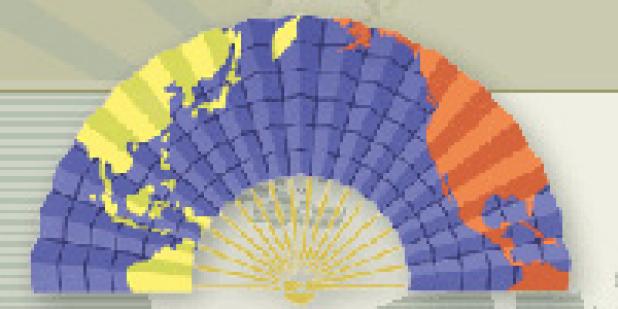Join us for a free one-day workshop for educators at the Japanese American National Museum, hosted by the USC U.S.-China Institute and the National Consortium for Teaching about Asia. This workshop will include a guided tour of the beloved exhibition Common Ground: The Heart of Community, slated to close permanently in January 2025. Following the tour, learn strategies for engaging students in the primary source artifacts, images, and documents found in JANM’s vast collection and discover classroom-ready resources to support teaching and learning about the Japanese American experience.
Asia Rising and the Rise of Asian America
A joint annual conference of ASPAC and WCAAS will feature discussions on the topic: "Asia Rising and the Rise of Asian America".
Where

A JOINT ANNUAL CONFERENCE of ASPAC and WCAAS
"Asia Rising and the Rise of Asian America"
JUNE 17 - 19, 2011
Sponsored by Asian Studies on the Pacific Coast (ASPAC) & Western Conference of the Association for Asian Studies (WCAAS)
Hosted by the Pacific Basin Institute at Pomona College
CONFERENCE THEME
Asia’s Rise
Asian societies and cultures are experiencing unprecedented change and are having a palpable impact on the direction of global affairs. Asia is the most populous geographic region, with 56 percent of the world’s population. The Asian economy today encompasses 33 percent of real world GDP—surpassing the size of either Europe or North America. Asia’s political influence is also on the rise. Of the Group of Twenty (G-20) nations currently managing the global economy, there are five Asian members (China, Japan, South Korea, India, and Indonesia), a substantial increase of Asian representation at the global level over the old G-8, which had Japan as the only Asian representative. And one cannot overlook how the rapid rise of China and India is unavoidably changing the international security order.
With successful development comes environmental cost. In a world with limited oil reserves, three of the top four oil importing countries are in Asia. China’s growth now makes it the world’s largest contributor to climate change. Asia also confronts harsh natural resource constraints. The demand for fresh water is already unmet in many places and will exceed supply by at least 20 percent across the entire region by 2025. However, Asia may be in a position to address these problems. It leads in many areas of innovation and problem solving: three of the top four patent-filing countries are Asian; the US is number two on the list. Finally, Asia also makes leading contributions to world culture. Asian cuisine is changing the world’s taste for fine food, Asian corporations set the standard in consumer products, and Asian fashion designers and film makers attract international attention and awards. Other leading cultural contributions come in music, religion, literature, architecture, and the fine arts, redefining how human civilization regards itself.
Rising Asian America
Globalization ensures that the impact of Asia’s rise is not limited to Asia. In a very real sense it is changing America at home. In Southern California and other parts of the country, an increasing number of Asians and those of Asian heritage establish their lives and form communities, raising issues of changing identity, power relations, and hybridity in culture. Yet the impact of Asians and those of Asian heritage born here in America has received relatively little attention. Therefore, we include “Asian America” in our scope of interest and invite proposals from those who can expand our knowledge in this area as well.
Featured Articles
Please join us for the Grad Mixer! Hosted by USC Annenberg Office of International Affairs, Enjoy food, drink and conversation with fellow students across USC Annenberg. Graduate students from any field are welcome to join, so it is a great opportunity to meet fellow students with IR/foreign policy-related research topics and interests.
RSVP link: https://forms.gle/1zer188RE9dCS6Ho6
Events
Hosted by USC Annenberg Office of International Affairs, enjoy food, drink and conversation with fellow international students.
Join us for an in-person conversation on Thursday, November 7th at 4pm with author David M. Lampton as he discusses his new book, Living U.S.-China Relations: From Cold War to Cold War. The book examines the history of U.S.-China relations across eight U.S. presidential administrations.




